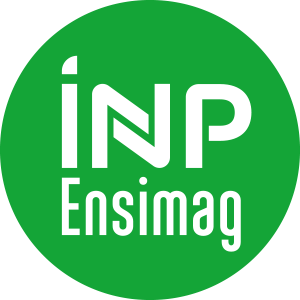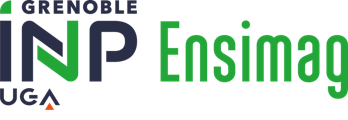Diversity and inclusion
Grenoble INP - Ensimag, UGA actively promotes respect for all, diversity and inclusion. The Respect and Equality Team works to this end by organising training for staff and awareness days for students. It brings together Faculty members, researchers, administrative staff and students to ensure a diverse range of perspectives. The diversity of the student body stems in particular from Ensimag’s international relations, which enable it to welcome around 37% foreign students yearly.
Minimising the direct environmental impacts of Ensimag's operations
Like any responsible professional organisation, Grenoble INP - Ensimag, UGA is committed to minimising the direct environmental impact of its operations. In line with the campus-wide plan, Ensimag participates in the policy of minimising and sorting waste. The use of open-source software, staff commitment and an IT asset management policy mean that equipment can be kept for up to seven years, or even ten years for certain types of machines, without impacting teaching services. Students participating in international mobility programmes can benefit from the Erasmus framework, which provides additional grants to promote sustainable mobility. Monitoring of students participating in international mobility programmes includes a carbon footprint assessment of their travel and the sharing of sustainable mobility experiences between year groups.
Digital Social and Environmental Responsibility
Ensimag, recognised as the leading Computer Science HEI in France across all rankings, aims to set an example in terms of digital social and environmental responsibility, reaching beyond the impact of its own activities. The regularly updated ADEME-ARCEP reports provide an insight into the impact of the sector in France and the systemic nature of digital technology. Recent legislation encourages companies, local authorities and other public employers to take these impacts into account. The various digital skills frameworks take into account the future professions needed for eco-design and, more broadly, for the digital and ecological transition.Grenoble INP - UGA includes the TEDS (Ecological Transition for Sustainable Development) foundation course defined by the Jouzel report in all its engineering courses, at third-year level at the latest. To this end, we call on researchers from fields related to environmental issues (climate, water, biodiversity, etc.), thanks to the UGA’s rich multidisciplinary environment. It is then the responsibility of each HEI to build on the knowledge acquired in the basic foundation course in the first and second-year Master’s level courses (M1,M2). At Ensimag, the central question is the role of digital technology in future social and environmental change. As part of the France 2030 “Skills and Professions of the Future” projects, we have won the “Greening of Digital Technology” call for applications with the VerIT project. Reflecting on the future of digital technology and its place in society is an intrinsically multidisciplinary subject. The VerIT project and Ensimag are working on this by bringing together stakeholders in engineering, management and humanities and social sciences in Grenoble.
The start of the first year at Ensimag is an opportunity to reflect collectively on digital infrastructure while walking around campus, and to explore the various specialisations offered at the school. It also provides an introduction to the multidisciplinary courses that will enable students to prepare their career plans. Students are put in contact with the professional digital sector and alumni, and are encouraged to reflect on the social and environmental responsibilities of digital professions.
On top of this foundation activity common to all students, in September 2026 Ensimag will be launching a new specialisation, “Digital Technology and Society”, run by a multidisciplinary team, to train specialists in the systemic nature of digital technology. The aim of this new specialisation is to combine extensive scientific and technical knowledge of the mathematical foundations and construction principles of digital systems and infrastructures with multidisciplinary perspectives. By opening up to insights from sociology, economics, political science, philosophy and history, graduates will be able to contribute fully to societal debates on the future of digital technology.



